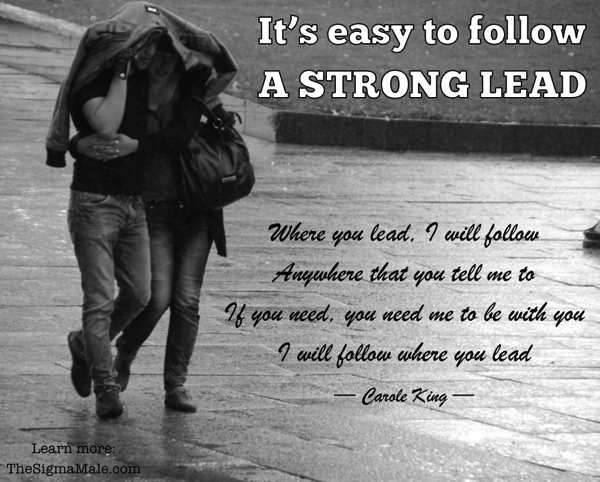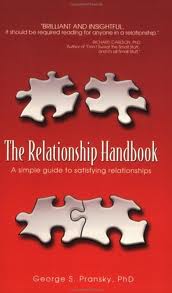
As a strong-willed, “conservative” male, I am regularly asked how I could possible presume to know what women want. Even if I were to set aside the research I compiled while writing The Sigma Male, the answer would still be simple: I’ve spent most of my professional life listening to women describe what they want in a partner. They’ve told me!
As a plastic surgeon, many of my patients are women making life changes. Whether they are addressing a physical issue that has always bothered them, seeking to please a spouse’s desires, looking to roll back the effects of childbirth or the ravages of time, or paying particular attention to their appearance as they re-enter the world of dating after a painful divorce, these women all have the same thing in common: Sitting in an exam room makes them incredibly vulnerable and, as a by-product, extremely open.
As I meet with these women they freely share details of their life, unsolicited information that justifiably outlines their hopes and fears. I’ve met with myriad women of distinct backgrounds, ethnicities and beliefs, but through the years I’ve come to recognize reoccurring themes that have given me a clear understanding of what they desire. After applying this knowledge to my own relationship, I decided to help others do the same.
Although I’ve worked with struggling couples for some time now, I still find it satisfying when I discover a fresh voice that sheds additional light on everything I’ve learned. To wit, readers continue to send me links to affirming articles and interviews, which I’m happy to pass along to you.
In an article titled “Why Strong, Independent Women Just Want to Be Taken Care of (Sometimes),” published by The Huffington Post, writer Lauren Jacobs comments on the paradoxical nature of the article’s title:
“Mature, confident, independent women sometimes face the catch-22 of wanting to be strong in the world while wanting to be ‘taken care of’ in their romantic relationships. That is, some women want to be completely respected for their capabilities and strength of character while also wanting to be led, supported and cared for emotionally, socially and yes, sometimes even economically when they are with a man. The stronger a woman is emotionally or professionally in her daily life, the more she may desire some aspect of this.”
While noting that she and other women do not want to be seen as “takers, traditionalists, needy, or vulnerable,” they still value men who are “givers.” Here is her explanation:
SOCIO-POLITICAL REASONS
1. The uphill battle in securing rights outside the home leads women to want to be treated that much more nicely at home.
"It becomes a refreshing change of pace: When a man’s kind treatment comes from a desire to give, we can relax, be ourselves and not have to push so hard.”
2. The reality of domestic violence causes women to pay extra attention to a man’s inclination to be protective.
"Women want to feel safe, and we deserve to feel safe, especially in the presence of men.
SOCIO-CULTURAL REASONS
1. Women try to look nice for men and want them to notice.
“Because we primp, preen, prep and prime ourselves in these ways for the benefit and attention of men, (let's face it, few of us endure hot wax for our own enjoyment), it is nice to feel that we are being taken care of or even courted once we are on the date that we have spent numerous hours, dollars and grimaces prepping for."
2. Acknowledging gender differences is fine, as long as you understand both sides of the coin.
"In other words... go ahead and tell us we're cute when we're mad, we have no sense of direction, we're overly emotional, we're obsessed with greeting cards, our apartments look like a bed-and-breakfast, that we're ridiculous to wear high heels and then complain about them... but then hold the door, share your umbrella, carry our bag, offer your jacket, buy us a drink, take us to dinner, write us a thank-you, email us with date plans, call us to say goodnight and tell us you're thinking of us. You can't have one without the other. I think that’s only fair."
3. A romantic night out shouldn’t feel like a business proposition
"When a man plans a fun excursion or suggests a new restaurant and pays for the couple, the date becomes both simpler and more romantic; thus, even women who are fully capable of planning an outing or footing a bill often prefer this mode, at least at the beginning of a relationship.”
SOCIO-EMOTIONAL REASONS
Women are socialized to be responsible — giving and helping, loving and sharing — so they like to see evidence that men can take care of people too.
1. Self Worth
“As strong, confident women we have enough self-esteem to know our intrinsic worth and to expect someone who respects us, who will continually be there for us and who will remain interested and dedicated enough to want to care for and about us for years to come."
2. The Emotional Biological Imperative
“A woman seeks someone whom she can imagine taking care of her while she is pregnant, in labor, recovering from delivery, nursing, weaning and/or unfortunately, sometimes going through the emotional and physical pain of miscarriages or infertility issues. It takes a real man to stand by their side and be there for them through the difficulties as well as the joys in life. Women also seek caregiving ability in a man who will be father to their children. Will he be there for them, support them and provide love and a sense of security?”
At this point, lest men believe that woman want too much, Jacobs has a special note for them:
”Most women are kind, reasonable, realistic people who want to make sure that their partner feels secure and loved. Most are not asking for fancy meals, fancy trips or fancy things; they know that the company is always the most important factor.”
"THEY SIMPLY WANT TO BE TAKEN CARE OF.”
THE BOTTOM LINE
"We’ve lived happily on our own for many years, and we’d rather be on our own and not be taken care of than be with someone and not feel taken care of. If we're going to be with somebody long-term, we want to find the man who loves our strength and wants to make us feel cared for in the ways I have discussed. And for the reasons I’ve discussed, we're not going to apologize for it. We either have to find a way of tactfully articulating our aforementioned paradox of strength and the need for care, or we have to find a man who intuits our needs — who has the desire to care-take while fully respecting us; who is strong, sharing and supportive while acknowledging and enjoying our strength; who is wholeheartedly giving in the right ways at the right times.”
I think it’s obvious that in describing what women are looking for, Lauren Jacobs is quoting from The Sigma Male without realizing it.
And for any man interested, now that “Mr. Right” has been so adequately defined, you can become that kind of man by focusing on the Sigma Philosophy and its Protective Skillset. It’s that easy.
You can find Jacob’s article in its entirety here.
—————
Dr. John Alexander is relationship expert and the author of The Sigma Male: What Women Really Want. To learn more about Sigma Coaching, visit his website, subscribe to his blog, “like” his page on Facebook, and follow him on Twitter.





























